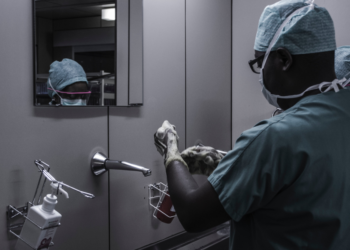With the Omicron coronavirus variant racing across the U.S., health authorities and experts urge people to upgrade their masks to N95 or similar high-filtration respirators when in public indoor spaces.
“Cloth masks are not going to cut it with omicron,” says Linsey Marr, a researcher at Virginia Tech who studies how viruses transmit in the air.
Omicron is so much more transmissible than coronavirus variants that have come before it. It spreads at least three times faster than Delta. One person is infecting at least three others at a time on average, based on data from other countries.
“It’s very contagious,” says Dr. Robert Wachter, chair of the Department of Medicine at the University of California, San Francisco. “And the kind of encounter that you could have had with prior versions of the virus that would have left you uninfected, there’s now a good chance you will get infected from it.”
Related Story: American Employees Are Quitting Jobs That Don’t Offer Better Wages And Benefits
A study that looked into community masking in Bangladesh found that face masks made of cloth are less effective than surgical masks. The filtration efficiency of cloth masks was 37 percent compared to a surgical mask, which was 95 percent. Surgical masks were proven to be more efficient than cloth masks after ten washes.
Unlike cloth masks, N95, KN95 and KF94 respirators are all made out of material with an electrostatic charge, which “actually pulls these particles in as they’re floating around and prevents you from inhaling those particles,” Karan notes. “And that really is key” — because if you don’t inhale virus particles, they can’t multiply in your respiratory tract.









